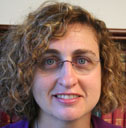A U.S. grand jury has indicted five Chinese military officers. The men are charged with stealing trade secrets by hacking American companies for the benefit of its state-owned companies. It is the first time the U.S. government has filed charges against specific officials of a foreign government.
 Jacqueline Lipton, co-director of Institute for Intellectual Property and Information Law at the University of Houston Law Center, says trade secrets can be notoriously difficult to protect, particularly across national borders.
Jacqueline Lipton, co-director of Institute for Intellectual Property and Information Law at the University of Houston Law Center, says trade secrets can be notoriously difficult to protect, particularly across national borders.
“Information can travel so quickly and globally over the Internet at the push of a button,” says Lipton.
The U.S. has had both state and federal legislation protecting trade secrets for a long time, but Lipton says to date, comparatively few prosecutions have taken place under the federal criminal legislation.
“A number of federal laws prevent hacking of computer systems and theft of American trade secrets. Prosecution of relevant offenses can be costly and time consuming. Prosecutors must decide carefully which cases to pursue,” says Lipton.
 UH Law Center professor Jordan Paust is a recognized expert on international law, treaties and the incorporation of international law into U.S. domestic law. Paust says the government is within its jurisdiction to extend the reach of its domestic criminal laws to conduct that was allegedly initiated abroad but was intended to have and did have consequences within the United States. Under international law, it’s referred to as territorial jurisdiction, and Paust says it’s been used in international drug trafficking cases.
UH Law Center professor Jordan Paust is a recognized expert on international law, treaties and the incorporation of international law into U.S. domestic law. Paust says the government is within its jurisdiction to extend the reach of its domestic criminal laws to conduct that was allegedly initiated abroad but was intended to have and did have consequences within the United States. Under international law, it’s referred to as territorial jurisdiction, and Paust says it’s been used in international drug trafficking cases.
“Under international law, we cannot enforce our laws in China without consent from the highest level of China’s government,” says Paust. “We will enforce our laws within the U.S. if the accused are found in the U.S. — for example, if they come here as tourists or are extradited to the U.S. to be tried. China might refuse a U.S. request for extradition on the basis of the political question exception to extradition in view of the obvious public or political purpose of the alleged hacking, even though there is also a purpose to engage in thievery for commercial purposes. However, China would be admitting that the hacking was for a political purpose.”
As the media continues to follow the developments in this story, professors Paust and Lipton are available as experts to discuss the legal issues surrounding the Chinese hacking indictments.
To schedule an interview with these experts, contact the University of Houston media relations team, or Carrie Criado, UH Law Center executive director of communications and marketing, cacriado@Central.UH.EDU, 713.743.2184; or John Kling, UH Law Center communications manager, jtkling@central.uh.edu , 713.743.8298.